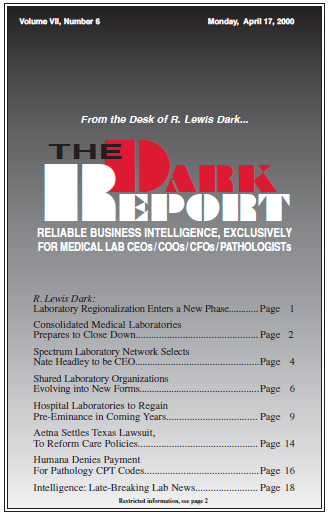CEO SUMMARY: One of the clinical lab industry’s most successful for-profit joint ventures will close its doors after 20 years of operation. The demise of Consolidated Medical Laboratories again demonstrates how difficult it is to overcome the different political agendas of hospital partners. Strong financial performance is frequently not enough to motivate hospital administrators to …
Consolidated Med Labs Prepares To Close Down Read More »
To access this post, you must purchase The Dark Report.


